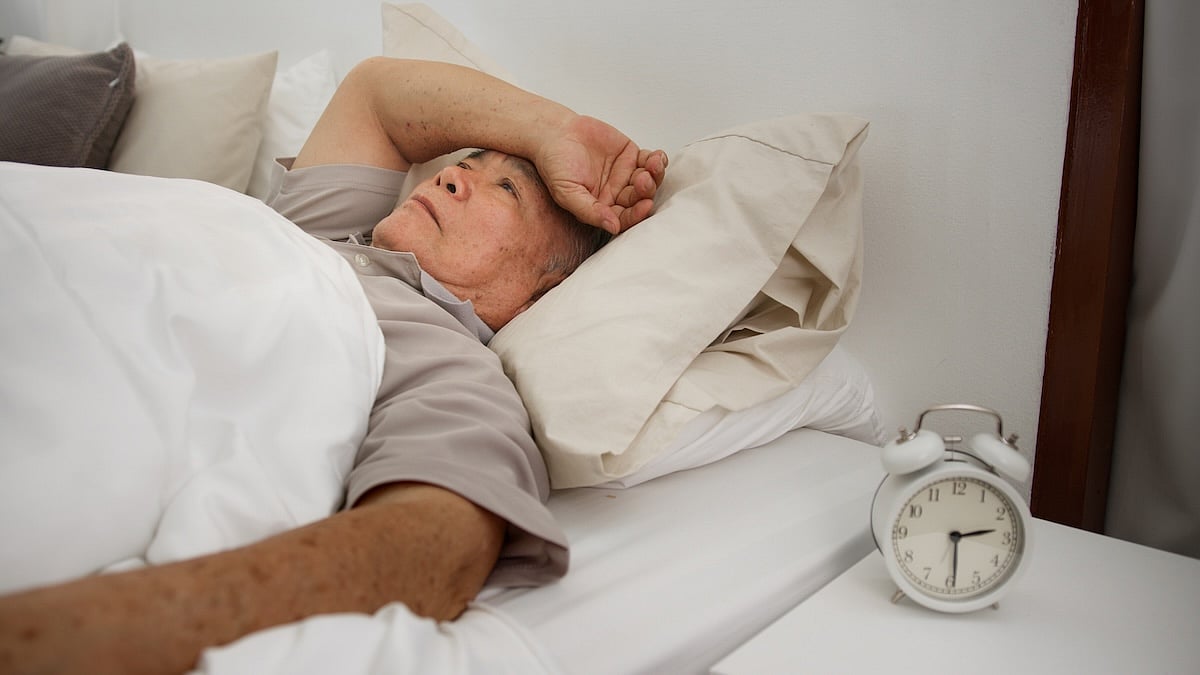Manténgase sano!

- Posted September 11, 2025
Insomnia Might Increase Dementia Risk Among Seniors
Your beauty rest might be protecting your brain health as well, a new study says.
Seniors with chronic insomnia might experience a faster decline in their memory and thinking skills as they age, researchers reported today in the journal Neurology.
Chronic insomniacs had a 40% higher risk of developing dementia or suffering a decline in their cognitive skills, compared to those who get better sleep, the study showed.
That’s the equivalent of an additional 3.5 years of brain aging, researchers said.
“Insomnia doesn’t just affect how you feel the next day — it may also impact your brain health over time,” said lead researcher Dr. Diego Carvalho, a sleep medicine specialist at the Mayo Clinic in Rochester, Minn.
“We saw faster decline in thinking skills and changes in the brain that suggest chronic insomnia could be an early warning sign or even a contributor to future cognitive problems,” he said in a news release.
For the new study, researchers tracked for more than five years 2,750 seniors (average age: 70), all of whom started out in good brain health.
About 16% of the participants had chronic insomnia, defined as trouble sleeping at least three days a week for three months or more.
The participants took thinking and memory tests each year. Some also had brain scans to look for signs of brain aging, including damaged brain tissue and toxic amyloid beta plaques.
About 14% of the people with chronic insomnia developed mild cognitive impairment or dementia, compared to 10% of those without insomnia, results show.
Overall, people with insomnia were 40% more likely to suffer from brain decline or dementia, after researchers accounted for other risk factors.
The effects of poor sleep were noticeable from the start of the study, researchers said.
People who reported getting less sleep than usual were more likely to have lower cognitive test scores and were more likely to have damaged brain tissue and amyloid plaques, the study said.
In fact, the effect of poor sleep on amyloid plaques — a hallmark of disease — was similar to the risk seen in people with known genetic risk factors for Alzheimer’s, researchers said.
Insomniacs who carry the APOE4 gene — linked to higher Alzheimer’s risk — showed steeper declines in memory and thinking skills, results showed.
“Our results suggest that insomnia may affect the brain in different ways, involving not only amyloid plaques, but also small vessels supplying blood to the brain,” Carvalho said.
“This reinforces the importance of treating chronic insomnia — not just to improve sleep quality but potentially to protect brain health as we age,” he said. “Our results also add to a growing body of evidence that sleep isn’t just about rest — it’s also about brain resilience.”
However, researchers noted that the study does not prove a direct cause-and-effect link between insomnia and brain decline, only an association.
More information
Harvard Medical School has more on sleep and brain health.
SOURCE: American Academy of Neurology, news release, Sept. 10, 2025






